Occupational safety
- data has been verified
In order to provide optimum occupational safety and health conditions, we spare no effort to maintain our current safety levels and to continuously raise the bar on our OSH standards, and we do our best to systematically improve our performance in this area.
These objectives are advanced by ensuring that:
- Workplaces are properly organised,
- Environmental surveys are performed on a regular basis,
- The best possible precautions are applied with respect to technical processes and people’s health,
- The man-machine-environment hazard identification and risk assessment system is enhanced on an ongoing basis,
- Consulting, oversight and inspection tasks are consistently implemented,
- Hands-on training sessions and workshops are held to improve our employees’ professional skills,
- Employee awareness and commitment are raised to achieve a culture of safe work.
We have for years followed the principle that building the awareness and commitment of both management and staff, promoting their culture and sense of occupational safety, and promoting appropriate attitudes and behaviour under normal working conditions and in crisis situations is the key factor in maximising the effects of the occupational safety system in place at the LOTOS Group.
We try to raise the workplace safety awareness by:
- Training and other development initiatives for employees,
- Education on OSH-related matters,
- Encouraging staff’s involvement in developing and implementing the corporate OSH policy,
- Advisory, practical support and partnership.
As part of our Corporate Social Responsibility strategy, we undertake initiatives aimed at promoting cooperation with third-party stakeholders. Such initiatives include:
- Cooperation with a view to improving occupational safety in the oil and gas industry, in accordance with the declaration signed at the General Labour Inspectorate in 2011 by Grupa LOTOS and other sector companies,
- Joint, regular exercises involving response to crisis situations (industrial failures) and evacuation, performed together with external units of the National Fire Service and Police,
- Sharing OSH experience with representatives of other companies,
- Cooperation with research institutions, e.g. through a project of learning from actual events occurring at the refineries of Statoil and Grupa LOTOS,
- Participation in external conferences in the role of speakers promoting a culture of occupational safety culture and sharing their experience,
- Participation in competitions organised by such institutions as the State Labour Inspection Authority, the Central Institute for Labour Protection, and the Polish National OSH Association.
We are committed to ensuring the safety of our visitors and contractors. Considering that we are involved in multifaceted projects, and given the pace of related construction and assembly work and the number of external contractors’ staff performing services on our premises, there is a permanent need to raise the workers’ awareness regarding such issues as correct behaviour, workplace safety and compliance with our internal Occupational Health and Safety and Fire Protection requirements. The OSH services of the LOTOS Group and representatives of external contractors exercise supervision over the ongoing repair, maintenance and construction works. Our representatives are present at work sites to offer advice, especially to supervisors appointed by the Company or by the contractors.
Our agreements with contractors contain clauses under which they are required to respect the applicable occupational safety rules and regulations, as well as other requirements and standards applicable on our premises. In this way, the contractors’ undertaking to protect the rights of their staff becomes a prerequisite condition for the performance of contracts. During regular OSH inspections and audits performed at the refinery, we check whether the OSH regulations are being adhered to by contractors, and thus whether human rights are being observed in the relations between employees, employers and the LOTOS Group. Those activities are an essential part of risk management. Each on-site check of whether external contractors are observing employee rights has a bearing on our further relations and is also reflected in the annual assessment of contractors, where safety at work, protection of health, and respect for human rights are among the key criteria.
Thanks to strictly enforced compliance with the national OSH regulations and our internal standards applicable to work performed at the facilities of the LOTOS Group:
- Employees have a better chance that legal requirements pertaining to their safety will be met by contractors, who at our facilities are obliged to meet work safety standards beyond the mandatory,
- Contractors have to provide their employees with the necessary collective and personal protection equipment, including protective workwear appropriate to the hazards identified at the refinery,
- Contractors must properly cooperate with their subcontractors, for whom they are as responsible at the LOTOS Group’s sites as for their own employees,
- Our OSH training, the sharing of work safety standards with contractors and assessments performed during inspections of their compliance with our OSH rules result in increased awareness of and improved ability to correctly identify threats and employ safe work methods.
As a result of the opportunities our contractors are offered, after their work for us is completed, they will have aware and committed employees, who are more alert to potential hazards at work, and take more care to ensure workplace safety. Such cooperation involving the transfer of requirements, knowledge and best practices results in lower accident rates, incidence of occupational diseases, and sickness absence among the contractors’ employees, which brings them measurable financial benefits in the form of lower social security contributions or a reduction in the cost of post-accident compensation.
As a socially responsible business, the LOTOS Group benefits from investments in OSH, which:
- Improve working conditions,
- Minimise the number of accidents at work,
- Reduce accident rates, including LTIF,
- Reduce costs related to accidents at work and occupational diseases,
- Eliminate burdensome, harmful and dangerous factors in the workplace,
- Eliminate threats and any irregularities which may arise,
- Raise personnel’s awareness and commitment,
- Improve personnel’s skills and qualifications,
- Increase employee satisfaction,
- Reduce operating costs and work disruption costs,
- Increase investors’ and insurers’ confidence,
- Increase employees’ confidence in the employer,
- Strengthen the brand’s image and value,
- Improve the Company’s reputation,
- Reduce potential exposure to criminal or civil litigation, and
- Allow the Company to match the benchmarks set by HSE leaders in the refinery sector.
In accordance with our business and CSR strategy, safety at work and employee health protection are priorities for the LOTOS Group, with respect to both our employees and the employees of our cooperating partners. Particular attention is given to efforts aimed at maintaining high safety standards, minimising risks and reducing accident rates.
A major challenge for us is to raise the awareness of how important it is to demonstrate personal commitment to compliance with OSH standards, in particular in the case of the middle management’s interactions with subordinate employees, who watch their behaviour. Increasing the awareness and commitment of the management staff and other employees is a priority, being one of the key determinants of a company’s accident rate.
As we work closely together with the OSH teams of the LOTOS Group companies, every year goals and targets are set aimed at improving safety at work, adopting uniform standards across the LOTOS Group, and sharing expertise and experience between the OSH specialists.
The key objective in our OSH approach is to raise the awareness and degree of involvement in improving safety among the management and employees of all ranks, as well as contractors.
In 2013, we pursued this objective through:
- Introduction of a system of quarterly OSH goals for the LOTOS Group companies,
- Cross-checking of workplace safety standards at the LOTOS Group companies operating in Poland,
- Information and education campaigns promoting workplace safety and health prophylaxis,
- Preparing grounds for the Board’s decision to include an OSH criterion in the Periodic Employee Evaluation System,
- Developing an electronic database from the monitoring of accidents at work and dangerous situations at the LOTOS Group,
- Drafting educational materials concerning accidents and safety threats at work,
- Internal training sessions for the LOTOS Group management, designed to remind them of their OSH responsibilities and duties conducted by a specialised training centre,
- OSH workshops for employees, covering the rules for handling AED defibrillators, extinguishing fires using fire-fighting equipment and giving first aid as well as reacting appropriately in emergency situations.
{GRI LA8}
We are involved in a number of initiatives, beyond those mandatorily required, designed to promote occupational health and safety and disease prevention in a manner which our employees find engaging and attractive. In 2013, we:
- Organised the 4th Occupational Safety and Health Day accompanied by an eyesight awareness event, during which the employees had an opportunity to be tested for ocular diseases, have their sight defects checked using state-of-the-art ophthalmologic equipment, and consult a specialist doctor. Based on the results of the tests, a report on employee health was prepared covering ocular diseases and eyesight loss prevention.
- Selected the safest production plant of Grupa LOTOS and the safest LOTOS Group company − in 2012, the titles were awarded to the Lube Oil Complex and LOTOS Petrobaltic, respectively.
- Carried out a campaign promoting occupational health and safety as part of the Occupational Safety and Health Promotion Schedule, with each month devoted to a different health-related issue. To further this campaign, we also published brochures on spinal disorders, diabetes, sight and hearing defects and viral hepatitis.
- Organised safe driving classes for employees who make frequent business trips because of their duties related to management of the LOTOS service station chain.
- Identified threats and assessed occupational risks related to specific workstations by carefully checking and evaluating workplace factors which could potentially harm or injure employees. Such systematic assessment allows us to continuously monitor whether threat mitigation measures applied at a specific station are adequate, and to determine what steps need to be taken to ensure successful threat mitigation.
- Made employees aware of chemical hazards every time a new chemical substance is introduced to the workplace. Our constantly updated electronic record stores Safety Data Sheets and information on LOTOS products and chemicals purchased for the Company’s needs. This solution enables almost immediate retrieval of information on chemicals by employees who come into contact with such substances while performing their duties.
- Implemented a pilot Lockout-Tagout (LOTO) safety system for blocking the flow of hazardous energies and marking blockages of energy at selected Grupa LOTOS production units. The system is aimed at preventing an accidental start-up of the installations by an unauthorised person during maintenance or servicing works carried out on them and its objective is to protect people who happen to be in their surroundings and the surroundings themselves from uncontrolled release of energy from the production unit installations.
Every year, we monitor the health of our employees, while also providing them with preventive medical care in line with applicable laws. We place strong emphasis on prevention and education, by means of training, awareness and prophylactic initiatives designed to minimise the consequences of diseases which may affect our staff.
Occupational Health and Safety Committee
{GRI LA6}
An Occupational Health and Safety Committee (OHS Committee) operates at Grupa LOTOS, serving as an advisory and consultative body to the employer. In accordance with the labour law, the committee is composed of employer representatives, workforce representatives (selected by trade unions active at the Company) and an occupational physician. The Committee reviews working conditions, evaluates the status of occupational safety and advises on measures taken by the employer to prevent accidents at work and occupational diseases.
In 2013, the OHS Committee was involved in a review of the working conditions at the Hydrogen and Sulphur Production Complex of Grupa LOTOS, as well as consultations on:
- occupational risk scorecards for individual positions at the Company,
- the content of updated internal regulations and rules, including implementing the rules governing the operation of the First-Aid Rescue Team, the establishment of first-aid dispensary posts and rules for performing works based on written permits.
{GRI LA9}
In the existing legal environment, both Polish and EU legislators point to dialogue, understood as organised exchange of information and opinions, as the only acceptable channel of workforce influence over occupational safety matters. The dialogue takes the form of OSH consultations. In accordance with an internal regulation in place at Grupa LOTOS, employees and their representatives are able to participate in OSH consultations by getting to know, discussing, commenting and presenting their proposals on matters at hand. Consultations are carried out with respect to matters which may pose an immediate threat to the workforce’s safety and occupational hazards which the employees requested to be eliminated or limited. The area is regulated by internal measures, procedures, orders and instructions, which are always first subject to employee consultations. At present, there are 8 regulations and 15 procedures and instructions in place at Grupa LOTOS to ensure workplace safety.
Accident rates
Both strategies pursued by the LOTOS Group, i.e. its business strategy and corporate social responsibility strategy, posit the achievement of specific LTIF rates. The LTIF rate measures the number of accidents at work per million hours worked. In 2013, the LOTOS Group’s LTIF rate stood at 4.4 – a total of 39 accidents were recorded, of which 35 required medical leave. Approximately 40% of all accidents recorded at the organization in 2013 happened when employees were moving on foot; these included mostly stumblings and slippings.
Those accidents could have been avoided if the employees had exercised more caution. Accidents of this type are difficult to prevent – the employer has little ability to limit their occurrence beyond educating and raising the general safety awareness of staff. An additional analysis was undertaken to identify the causes of accidents, revealing that nearly 60% of them were directly attributable to human error, while technical and organizational factors accounted for approximately 20% of the total.
Accidents recorded at the LOTOS Group in 2013 were mainly caused by:
- Inappropriate employee behaviour consisting of e.g. crossing the road or driving where it is banned, entering potentially dangerous areas without making sure if they are safe, etc.;
- Loss of balance or insufficient focus on the task at hand especially when moving around;
- Infrequent reporting of irregularities at the workplace . If dangerous situations are not reported, the employer may be unable to remove the related hazards;
- Routine or rushed approach to work compromising vigilance against potential hazards at the workplace;
- Lack or improper use of personal and collective protection measures by employees;
- Incorrectly organised workstations;
- Incorrect general organisation of work;
- Atypical construction of certain technical components, latent defects of equipment used.
{GRI LA7}
Accidents at work
| Grupa LOTOS | 2011 | 2012 | 2013 |
|---|---|---|---|
| Number of employees (1) | 1,318 | 1,323 | 1,344 |
| Accidents at work, including: | 5 | 13 (2) | 12 |
| Women | No data available (3) | 2 | 1 |
| Men | No data available (3) | 11 | 11 |
| Post-accident absenteeism (calendar days) (4), including: | 168 | 253 | 302 |
| Women | No data available (3) | 28 | 11 |
| Men | No data available (3) | 225 | 291 |
| Occupational diseases | None | None | None |
| Lost Time Injury Frequency (LTIF) (5) (per 1 million hours worked) | 2.1 | 4.3 | 4.5 |
| Lost Day Rate (LDR) (6) (per 200,000 hours worked) | 0.42 | 0.9 | 0.9 |
| LOTOS Group (7) | 2011 | 2012 | 2013 |
| Number of employees (1) | 5,004 | 4,795 | 4,773  |
| Accidents at work, including: | 31 | 34 | 39(8) |
| Women | No data available (3) | 5 | 7 |
| Men | No data available (3) | 29 | 32 |
| Post-accident absenteeism (calendar days) (4), including: | 1,826 | 1,651 (9) | 1,238 |
| Women | No data available (3) | 196 | 174 |
| Men | No data available (3) | 1,455 | 1,064 |
| Occupational diseases | None | None | None |
| Lost Time Injury Frequency (LTIF) (5) (per 1 million hours worked) | 3.3 | 3.3 | 4.4 |
| Lost Day Rate (LDR) (6) (per 200,000 hours worked) | 0.7 | 0.7 | 0.9 |
(1) Average number of employees at companies reporting OSH metrics.
(2) Including 1 accident treated as an accident at work.
(3) Data collected since 2012.
(4) Lost days are counted from the day when medical leave is taken.
(5) LTIF – number of occurrences resulting in inability to work x106 /number of hours worked.
(6) LDR – number of occurrences resulting in inability to work x2*105 /number of hours worked.
(7) Companies reporting OSH metrics: Grupa LOTOS, LOTOS Asfalt, LOTOS Kolej, LOTOS Lab, LOTOS Oil, LOTOS Serwis, LOTOS Straż, LOTOS-Air BP, LOTOS Ochrona, LOTOS Paliwa, LOTOS Infrastruktura, LOTOS Terminale, RCEkoenergia, LOTOS Biopaliwa, LOTOS Petrobaltic.
(8) In 2013, the LOTOS Group recorded 39 accidents at work (including 5 accidents treated as accidents at work), with medical leave taken in 36 cases.
(9) Including 380 days of absence due to accidents which occurred in 2011.
In 2013, no severe, group or fatal accidents or confirmed occupational diseases were recorded at the LOTOS Group.
Challenges in strategy implementation until 2015
- Implementation of the Lockout-Tagout safety system for certain types of work at active production units of Grupa LOTOS.
- Introduction of the fundamental HSE standards aimed at shaping proper conduct among the employees and contractors.
- Implementation of a revised work permit system with the use of IT tools as part of the overall improvement measures.
- Promotion of workplace safety by organising an annual Occupational Safety and Health Day and encouraging employee participation.
- Provision of OSH workshops to administration and office staff.
- Implementation of a workstation self-check system based on thematic checklists.
- Perfectioning of an electronic tool for monitoring the work safety system at the organization – the OSH Portal.
- Modification of the programme of exercises teaching employees how to react to accidents at work, chemical hazard alerts and evacuation, and conduct of emergency drills using simulated threats.
- Development of a methodology for calculating accident costs taking into account technical, organisational and human causes.
Development prospects until 2020
- Implementation of periodic and additional OSH training based on e-learning tools, with practical training sessions.
- Implementation of a learning project based on actual incidents occurring at Grupa LOTOS and other companies around the world
- Adoption of uniform occupational health and safety standards across the LOTOS Group.
- Revision of OSH and fire safety requirements and standards for contractors.
- Continuation of training and preventive programmes regarding workplace safety and health protection, including implementation of new educational projects.
- Development of a work safety culture centred around the commitment of management, lower-tier staff and contractors working with the Company.
- Cooperation with international HSE corporations and consultants with the view to promoting and implementing world best HSE practices.
- Occupational safety best practice benchmarking.


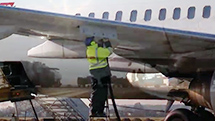
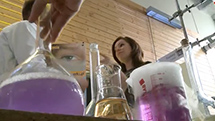








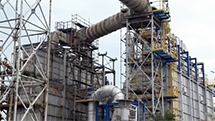




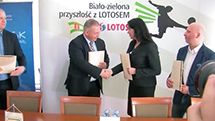

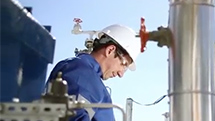


 E-mail
E-mail Facebook
Facebook Google+
Google+ Twitter
Twitter